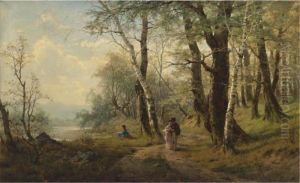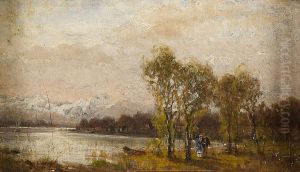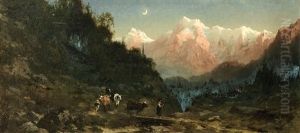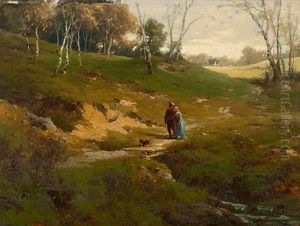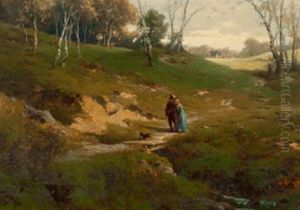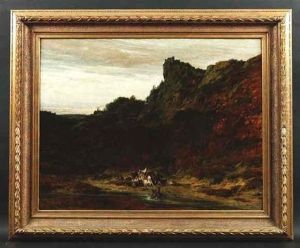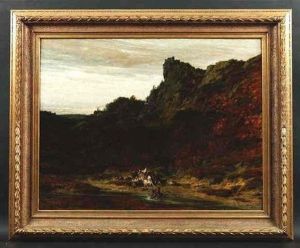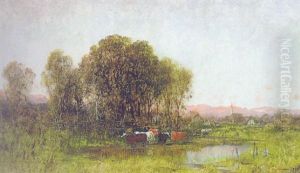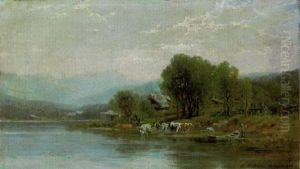Eugen Hettich Paintings
Eugen Hettich was a German artist known for his contributions to painting and graphic arts. Born on July 7, 1894, in Tuttlingen, Germany, Hettich grew up during a period of significant cultural and political changes that would eventually lead to World War I, which undoubtedly influenced his formative years.
Eugen Hettich's artistic journey began with his education, which was likely interrupted by the war. However, it is known that he was active during the interwar period, a time when art was undergoing dramatic shifts with movements like Expressionism, Dadaism, and New Objectivity gaining prominence in Germany. Hettich's style was shaped by these movements, as well as by the broader European avant-garde.
After World War I, there was a surge in artistic exploration, and Hettich became part of this creative milieu. Unfortunately, not much is widely known about the specifics of his career, such as where he might have exhibited his work or who his contemporaries were. Nonetheless, he was a part of the German art scene during a time when artists were grappling with the aftermath of war, the rise of technology, and the search for new forms of expression.
Hettich's work was further influenced by the political and social upheavals of his time. During the rise of the Nazi regime, many forms of modern art were condemned as 'degenerate art,' which had a profound impact on the careers of numerous artists in Germany. The extent to which Hettich's work was affected by these events is unclear, but it is likely that, like many of his peers, he faced considerable challenges during this dark period in history.
After World War II, Germany underwent a period of reconstruction, and the art world began to rebuild itself as well. Eugen Hettich continued his artistic pursuits in this new context, adapting to the changing times. He lived through the significant cultural shifts of the 1950s and 1960s, which saw the rise of Abstract Expressionism and other forms of modernism. Despite the scarcity of detailed information about his later career, Hettich remained active as an artist until his later years.
Eugen Hettich passed away on September 16, 1974, in Tuttlingen, Germany. Although he may not be as well-known as some of his contemporaries, his work contributes to the rich tapestry of 20th-century German art. His legacy is preserved through the pieces he created, which reflect the tumultuous history and the artistic evolution of his era.
